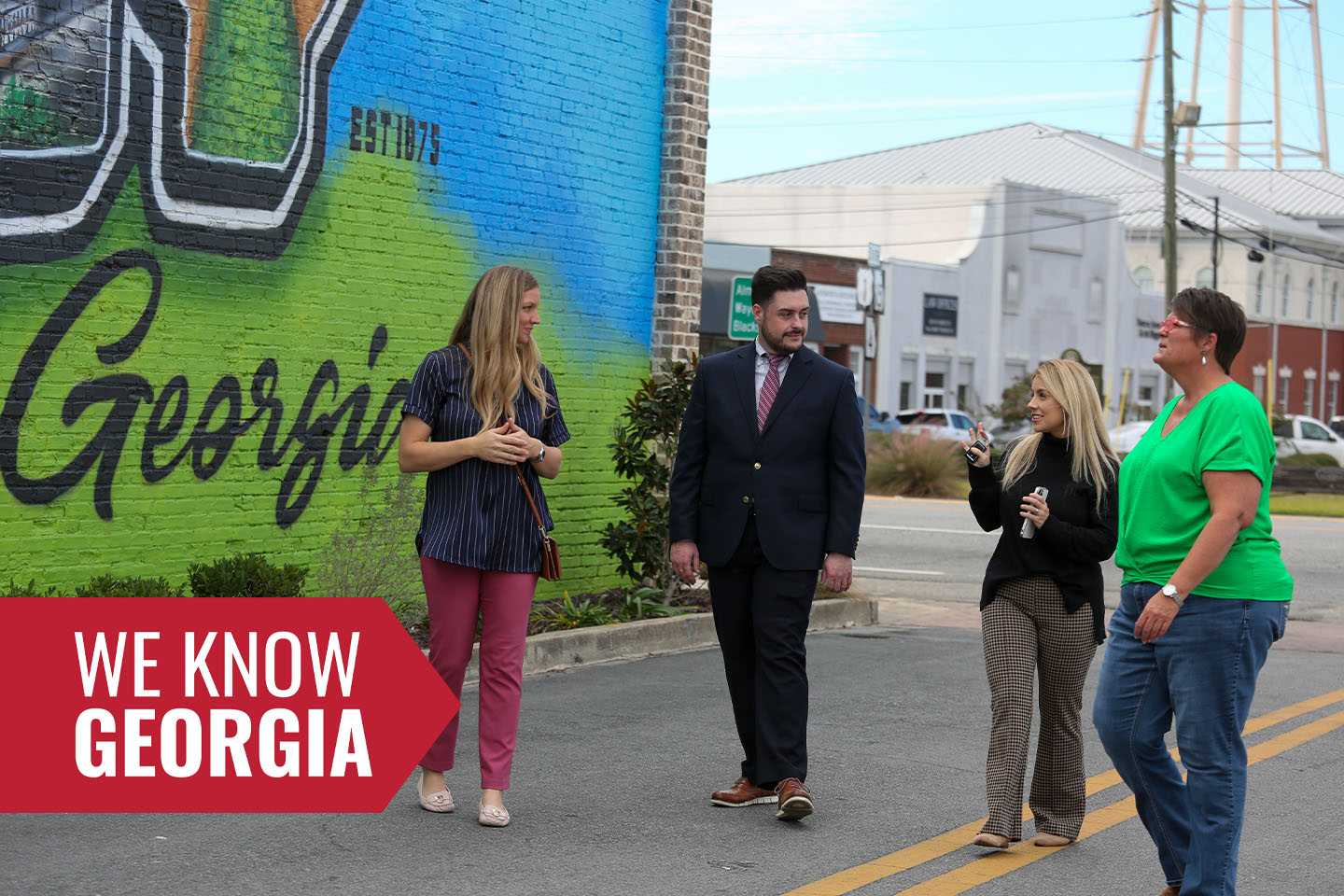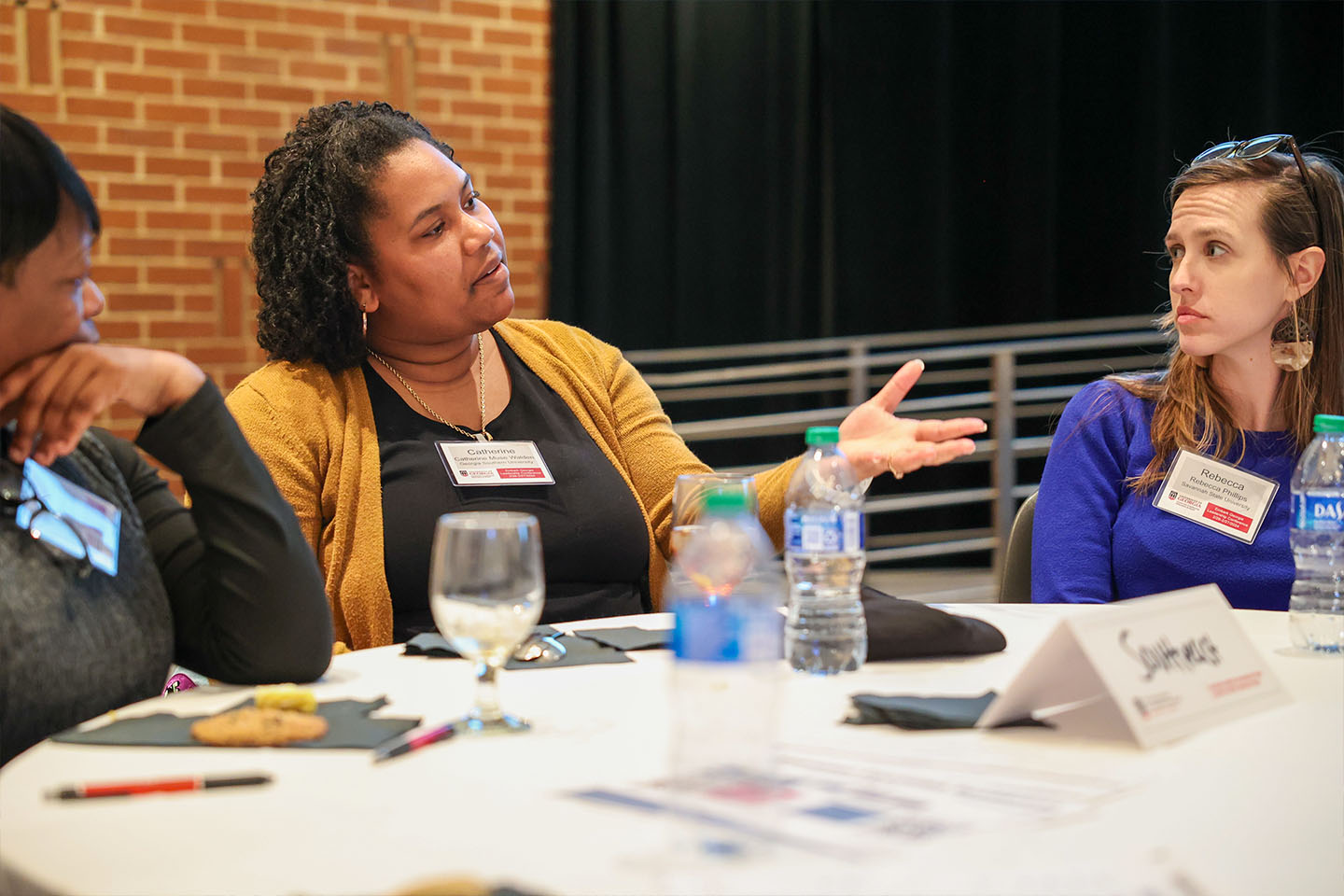ATHENS — The general sense of harmony among Macon-Bibb County commissioners continued Saturday, the second day of their two-day planning retreat, as they discussed ways to work together and with constitutional officers.
The nine commissioners, Mayor Robert Reichert and several senior staff members met with two facilitators from the Carl Vinson Institute of Government, working on trust and collaboration, and going over major plans and priorities.
Reichert kicked off the discussion at the Hilton Garden Inn with a renewed call for one of his longtime interests, passenger rail connections from Macon to Atlanta and other cities. The recent snowstorm that led to gridlock in Atlanta has reignited interest statewide in alternative transportation, and perhaps another try at a transportation sales tax to fund improvements, he said.
“There’s a serious new debate going on right now, this week, about ‘What do we do?'” Reichert said.
A 2012 T-SPLOST referendum failed in all but three of 13 regional commission districts statewide. It failed in Middle Georgia, but it passed in Columbus and the surrounding area. Now, Columbus is engaged in planning a possible passenger rail link with Atlanta, Reichert said.
The fruit of Friday afternoon’s discussion, a call for open communication, mutual respect and honest collaboration between commissioners and city-county staff, was so well received that some commissioners said they’d like those points printed on cards, to be kept handy at regular meetings.
One call to have all discussions between department heads and commissioners routed through County Manager Dale Walker met some minor push back. Commissioner Al Tillman said he didn’t want department heads discouraged from making sure commissioners got the whole story on issues.
Commissioner Elaine Lucas said department heads should have some right of appeal to elected officials. Right now, they serve solely at the pleasure of the mayor.
“I feel that’s a hole we need to patch up,” she said.
Constitutional officers
Ken Jarrard, attorney for several Georgia counties, talked about relations between the new government and constitutional officers such as the Bibb County sheriff.
The Macon-Bibb charter gives the consolidated government sweeping powers, but constitutional officers have independent powers of their own, he said.
“You have in your charter what I call ‘nuclear language,'” Jarrard said. Legislators made sure the Macon-Bibb County government had not only individually specified powers, but any that may be granted by future state laws, he said.
Commissioners’ primary power related to constitutional officers comes through controlling their annual budgets, but it’s essential to establish a good working relationship and mutual understanding to keep conflicts from becoming acrimonious, Jarrard said.
Legal disputes with constitutional officers are not only financially costly and damaging at the next election, but they can poison intragovernmental relations for years, with no one really emerging a winner, he said.
A possible source of disagreement is the requirement, written into the charter, to cut the overall budget by 20 percent within five years, Reichert said.
The constitutional officers aren’t subject to that, Jarrard said, but their total budget amounts are under commissioners’ control.
Commissioner Bert Bivins said budgets, particularly Bibb County’s, have already been tightened so much that “real serious problems” will result from further reductions. Lucas said the charter does give an “out” from budget cuts if making them would harm public safety.
Much of the discussion centered on relations with the Bibb County Sheriff’s Office.
That’s not because there’s any conflict with Sheriff David Davis, Reichert said. But the rules will govern interaction with all future sheriffs, and funding the sheriff’s office is a huge chunk of the city-county budget.
“One Macon!” study
Reichert gave commissioners a quick overview of a new community- and economic-development study, originally planned for a work session that was canceled due to Tuesday’s bad weather.
It was intended as an update to a 2001 study that targeted five industries for Macon and Bibb County to attract, but the research firm, Atlanta-based Market Street, said the area really needs to work on other local problems before it can compete with other regions for jobs, he said.
“That really came as sort of a slap in the face to a lot of people,” Reichert said.
From interviews with around 700 people and comparison with four other governments, Market Street assembled a long list of critical issues, including race, trust in leaders, health, local quality of life, and education — including retention of college graduates.
“We know we’re generating a lot of college graduates, but they’re all leaving town,” Reichert said.
Market Street presented recommendations on three general areas: schools, jobs and “places,” the latter a catchall for urban planning, redevelopment, tourism, recreation and other quality-of-life issues.
Projects and priorities
While details of the Market Street report will take time to absorb, the general ideas had some impact on the rest of the discussion, which focused on the new government’s plans for the remaining five months of the fiscal year and commissioners’ overall priorities.
Walker, the county manager, said there are about 40 ongoing projects, including much SPLOST-funded work. Some of it may be controversial, such as adopting a final organization chart for the new government, including the selection of about a dozen department heads.
Some departments still have two leaders, a holdover from separate branches of the former city and county. One top position in each department will be advertised internally during February and candidates interviewed in March, Walker said. Reichert will make his picks on April 1, and the next day those will come before commissioners for ratification, Walker said.
Another major decision will be whether to outsource all garbage collection, as Bibb County did, or enlarge the former city department to work countywide.
Reichert said he would like to keep both systems in place for a year and let them compete to show efficiency.
As their final business, facilitator Gordon Maner of CVI had commissioners write down their top priorities for the new government to focus on.
“I want staff to participate in this too,” he said.
The answers, read out in turn, were grouped into six major categories: community and economic development, public safety, better government function, public infrastructure, general quality of life, and improving education.
Education was at the top of the list, several commissioners said. But Commissioner Gary Bechtel noted that that’s the one Macon-Bibb officials can affect the least. They agreed to “support and encourage” education while acting more directly on the rest.
Facilitators plan to meet with Macon-Bibb officials several more times in the coming months to set more specific goals and talk about how to reach them, said Mara Register of CVI.



